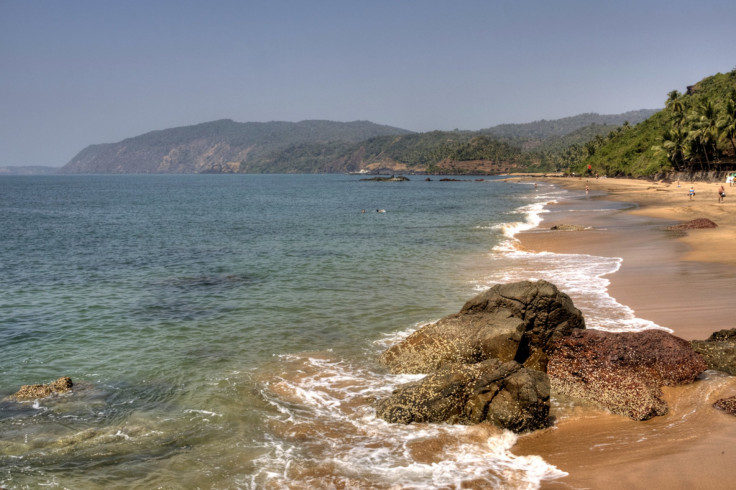Bunny Hop: India’s Goa State Rejects Playboy Club, But The Partying Goes On In Resort

Playboy, the iconic U.S. adult entertainment company, will not be able to establish its first club in India, after government authorities in the western state of Goa nixed the idea.
Manohar Parrikar, Goa’s chief minister, said Playboy’s proposal to open a club at Goa's Candolim Beach will not be considered by his government on "technical grounds.”
The government of Goa is dominated by the right-wing Hindu nationalist Bharatiya Janata Party (BJP), which has long campaigned against what it characterizes as “vulgar” and “corrupt” Western influences in India.
PB Lifestyle, the Indian company that holds the rights to the Playboy brand in India, has not yet commented on the Goa government’s rejection. PB reportedly planned to open eight Playboy clubs in India over the next three years -- and dozens more over the next decade.
Playboy magazine and other Western adult magazines remain illegal in India under existing laws governing obscenity.
Dilip Parulekar, Goa's tourism minister, said that the planned Playboy club had caused much consternation in local government.
"There have been concerns raised about vulgarity being promoted through the club. We are aware of how prostitution is rampant in the state's coastal belt," he said, according to WaToday, an Australian newspaper.
Michael Lobo, a BJP legislator in Goa, even threatened to go on a hunger strike if the Playboy club ever opened.
Complaining that Goa is already infested with too many [Western] tourists who indulge in drinking, drug-taking and illicit sex, Lobo warned that placing a Playboy club in the area would completely alienate families from the resort, one of India’s most popular tourist spots.
"Playboy does nothing but lower the dignity of women,” Lobo told local reporters.
“It treats them as commodities, and the basic concept of Playboy is the entertainment of men by seminaked women. We don't want this here.”
Candolim Beach, where the first Playboy club was supposed to have been constructed, lies in Lobo’s district. He added that Playboy is "a byword for prostitution, vulgarity and decadence.”
The opposition to Playboy mirrors movements by BJP and other conservative Hindu organizations to do away with other Western customs and practices that have seeped into India, including Valentine’s Day, couples holding hands in public, and even the wearing of blue jeans.
"Indian culture is against nudity, [as well as] men and women drinking together. We don't want to be polluted by this Western import," Manoj Solanki, general secretary of the conservative Hindu Janajagruti Samiti (Hindu Awareness Society), said, according to South China Morning Post.
Playboy had already tried to accommodate Indian standards by, among other things, promising that the "bunnies" who work at its proposed clubs in India would wear a two-piece costume incorporating the traditional Indian sari, rather than the well-known "bunny suit," which reveals more flesh.
It is unclear if the absence of a Playboy club will impact Goa tourism or not.
According to the Goa government’s department of tourism, almost 3 million tourists visited its beaches last year, almost triple the number of tourists there 20 years ago.
But tourists are often robbed, raped and even killed by Indian criminals in the region. Indian Express reported that almost three-fourths of the cases of theft and robbery in Goa targets foreigners.
Strangely, while tourism to India as a whole has suffered a drop in the wake of global media coverage of last year’s notorious gang rape of a young woman in Delhi, tourism to Goa has apparently remained steady.
The Associated Chambers of Commerce and Industry of India reported that during the January-February 2013 period, tourist arrivals to Goa have actually increased over the year-ago period, while India has seen an overall 25 percent drop in foreign arrivals.
© Copyright IBTimes 2024. All rights reserved.




















